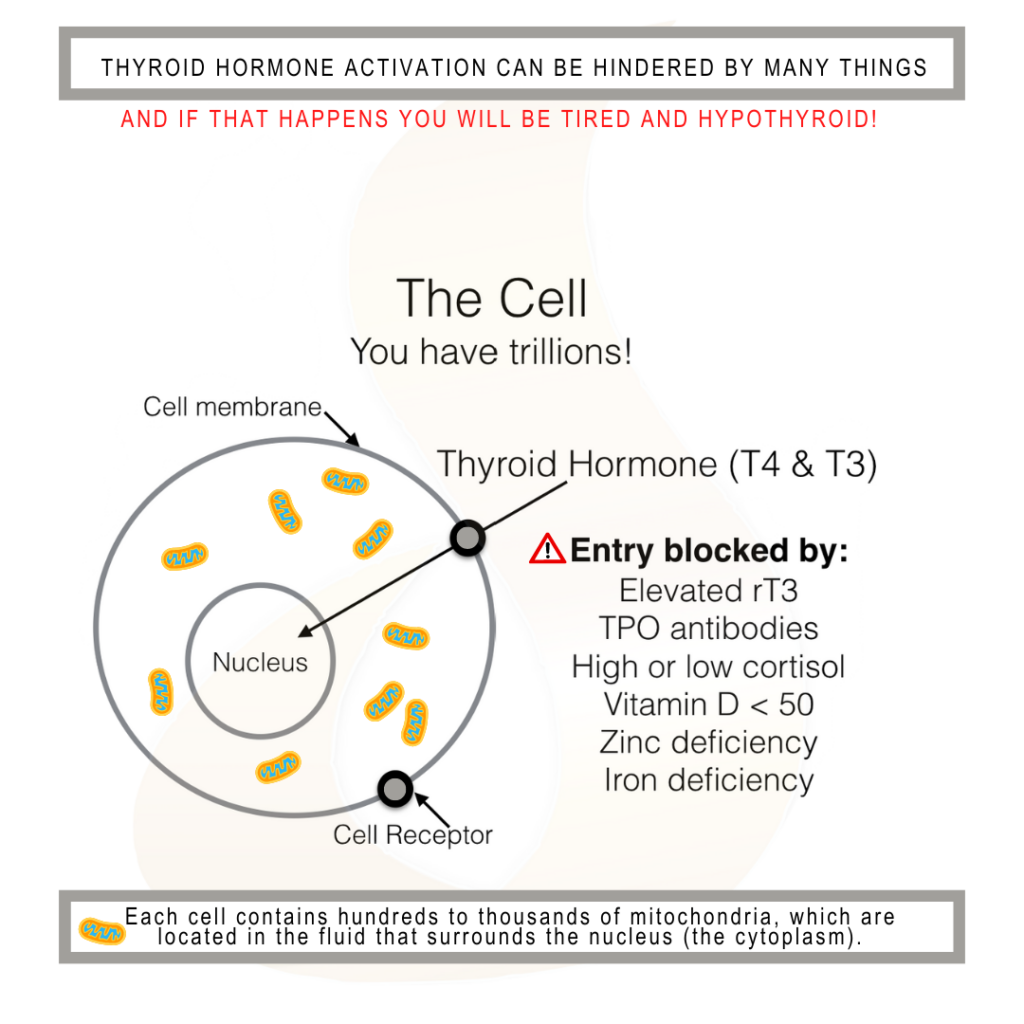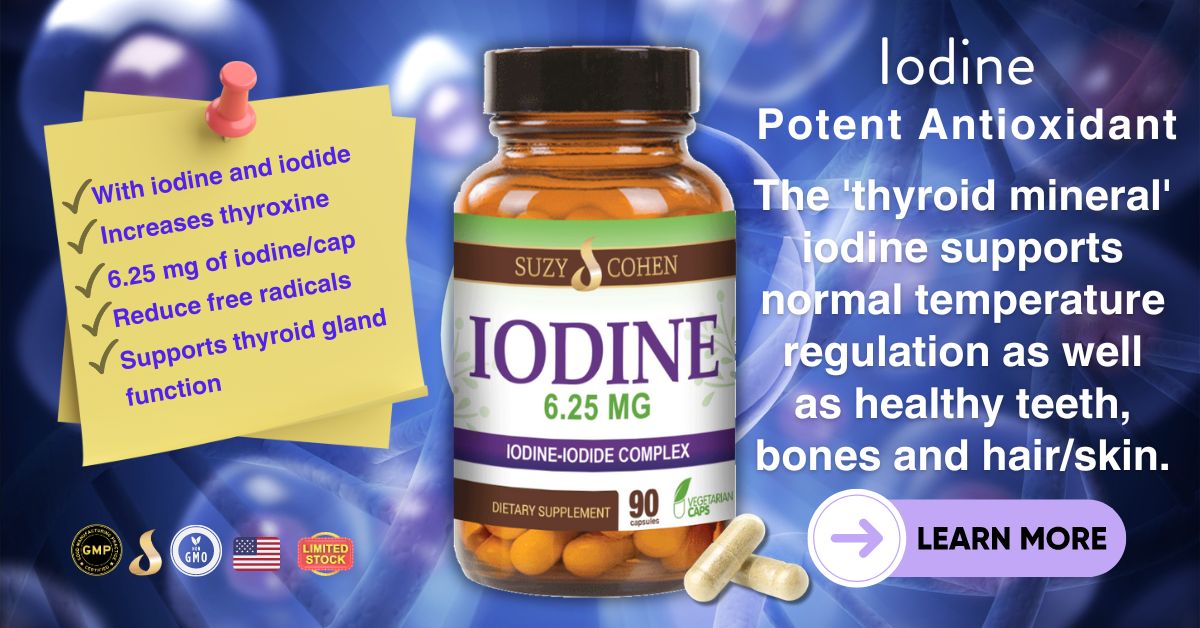What's On This Page?
ToggleIn recent years, awareness and understanding of thyroid health have skyrocketed, mirroring the global increase in thyroid disorder diagnoses. Fatigue is the #1 symptom. The thyroid, a small but mighty gland located in your neck, plays a pivotal role in regulating numerous metabolic processes within the body.
According to the American Thyroid Association, up to 20 million Americans have some form of thyroid disease, with women being five to eight times more likely than men to encounter issues. Yet, over 60% of those affected are unaware of their condition, underscoring the importance of education and proactive health measures.
Thyroid health is nuanced, influenced by a myriad of factors from diet to stress levels. As we move deeper into 2024, it’s crucial to adopt a holistic approach to support this essential gland. Whether you’re navigating the challenges of an underactive thyroid (hypothyroidism), an overactive thyroid (hyperthyroidism), or simply striving for optimal wellness, the following tips offer a comprehensive guide to maintaining thyroid health.
10 Tips for Optimal Thyroid Health
- Prioritize Mineral-rich Foods: Selenium, magnesium, and iodine are important trace elements that are required for the production of thyroid hormones. Foods rich in selenium, such as Brazil nuts, sunflower seeds, and fish, can support thyroid function. A fun fact: Just a couple of Brazil nut can provide your daily recommended intake of selenium!
- Manage Stress: Chronic stress can wreak havoc on your thyroid. Techniques like yoga, meditation, or any form of regular exercise can help manage stress levels, supporting overall thyroid health.
- Limit Goitrogens: Goitrogens are substances that can interfere with thyroid function, found in foods like soy, cabbage, and broccoli. Cooking these foods can reduce their goitrogenic effect, making them safer for those with thyroid issues. I have two articles you may be interested in reading on this topic: The Case Against Kale
Read this too: Be Aware of Thyroid Risks: 6 Goitrogenic Medications to Understand
- Ensure Adequate Iodine Intake: Iodine is essential for thyroid hormone production. While iodine deficiency is less common in developed countries due to iodized salt, some individuals may need to pay extra attention to their iodine intake, especially if they limit salt or follow a plant-based diet. Seaweed, dairy, and fish are excellent sources of iodine. It may be better to supplement. Read my article, The Truth About Shellfish Allergies and Iodine Deficiency.
- Consider a Gluten-free or Keto Diet: For some individuals, especially those with Hashimoto’s thyroiditis, a gluten-free diet may help reduce antibodies and support thyroid function. This approach isn’t universal but can be beneficial for some. You might want to read my other article, Gluten’s Impact On Your Mood and Skin: Why Acid Blockers Might Make it Worse.
- Supplement Wisely: While supplements can support thyroid health, it’s important to choose wisely and avoid over-supplementation. Consulting with a healthcare provider is key. You may want to take a couple minutes to read the reviews for both Thyroid Script and HashiScript, two formulas that are special, one of which is patented now!
- Consider Vitamin D: If you are tested and found to be deficient in Vitamin D, you may want to supplement with it because a deficiency will cause you to NOT activate your T3 as well as normal because the hormone is not able to enter the cell.

- Monitor Soy Intake: While soy is a controversial topic, excessive soy consumption may impact thyroid function due to its isoflavone content. Moderation is advised, especially for those with hypothyroidism.You may already be aware of this, but just in case, most all superfood drink mixes (green drinks) are full of iodine-suppressing goitrogens like alflafa. Look at the label and you’ll see!That’s why I formulated Yummy Greens® which is a thyroid-friendly goitrogen-free green superfood drink mix. I recently wrote this fascinating article, Soy Foods and Thyroid Disease: 7 Ways to Navigate the Impact.
- Wear a Thyroid Collar for X-Rays: Be proactive, and don’t be shy. Request a thyroid collar when undergoing an X-ray that involves exposure to your neck or thyroid region. The thyroid gland is highly sensitive to radiation, and protection is key to preventing damage.
- Mind Your Gut Health: Emerging research suggests a strong link between gut health and thyroid function. Probiotics and a nutrient-dense diet that is free of artificial chemicals will support a healthy gut microbiome, potentially improving thyroid health. If you have gut problems read my other article, Navigating the World of Antacids: From Traditional to 5 Narural Remedies.

Additional Insights for Thyroid Health
For those of you having to navigate the complexities of thyroid concerns, particularly those on medications, there are additional steps and considerations that can further optimize treatment and improve quality of life.
Despite treatment, some may still experience symptoms such as hair loss, cold hands and feet, and overall sluggishness. Here, I will delve deeper into potential strategies to enhance thyroid health and well-being:
Understanding Medication and Thyroid Function
Medication Dynamics: Synthroid, a synthetic form of thyroxine (T4), is designed to mimic the body’s natural thyroid hormone. However, the conversion of T4 to its biologically active form triiodothyronine (T3), is crucial for you to feel well This conversion can be particularly challenging for individuals with depression, potentially leading to inadequate relief from symptoms.
Natural Desiccated Thyroid (NDT): Switching to an NDT medication like Armour Thyroid, Nature-Throid, or WP Thyroid may offer a more comprehensive treatment approach. NDT provides both T4 and T3, which may result in improved symptom management for some individuals.
T3 Medication: For those who struggle with T4 to T3 conversion, adding a T3 medication to their regimen, such as compounded T3 or Cytomel® can directly supply the active hormone that the body needs, potentially enhancing mood and reducing other hypothyroid symptoms. You can also consider Thyroid Script® for adrenal and thyroid support as well as enhanced T3 activation and more restful sleep.*
Lifestyle and Supplemental Support
Trace Minerals and Vitamins: Incorporating a high-quality trace mineral formula that includes zinc, magnesium, iodine, and selenium can aid in the activation of Synthroid® and improve T3 conversion. HashiScript® due to its combination of selenium and digestive enzymes in particular, is useful for enhancing T3 activation while simultaneously reducing antibodies that could harm the thyroid gland.* Simply put, this conversion fixes fatigue!
Hoping to Conceive Soon?
Pre-Pregnancy Thyroid Check: Hypothyroidism can significantly impact fertility and pregnancy outcomes. It’s essential to have a thorough thyroid evaluation before attempting to conceive to mitigate risks such as infertility, premature birth, and developmental issues. You may be interested in this article, 2 Essential Nutrients You Need Before Pregnancy.
 Have you had surgery recently?
Have you had surgery recently?
Post-Surgery Thyroid Awareness: A condition known as non-thyroidal illness syndrome can emerge after surgery, leading to symptoms of hypothyroidism even when standard thyroid tests appear normal.
If you experience symptoms consistent with hypothyroidism post-surgery, a trial course of thyroid medication may be warranted to assess response and adjustment of treatment.
Lips dry? Do you have dry skin?
Stay Hydrated: It’s such a simple thing and yet reminders matter. We often let ourselves get too dry. Proper hydration is vital for overall good health because it helps you filter out toxins. Staying hydrated will make your blood flow better, and can aid in the detoxification processes throughout your body that support thyroid function.
Aim for about 6 or 8 glasses of water each day and make sure you use something like unflavored Pedialyte® or Jigsaw Electrolyte Supreme® or Re-Lyte® Hydration, any other brand of electrolytes that you want (those are just my favorites). But most of all try not to get your lips dry! When that happens, it’s a sign you’re not hydrated well enough.
Summary
As we move forward, understanding and prioritizing thyroid health has never been more important. By incorporating all of these essential tips into your daily routine, you can support your thyroid gland’s function, potentially preventing issues before they arise.
Remember, while these tips are beneficial for most, your individual needs could vary from what they were last year, so it’s best to consult with a healthcare practitioner. Regular monitoring of your thyroid levels and labs, especially if you have or have elevated severe symptoms can help catch issues early and adjust treatment as necessary.
Every step you take contributes to a better outcome. Also, I believe a holistic approach to thyroid wellness is ideal. And remember, the journey to optimal thyroid health is a marathon, not a sprint, so patience, consistency and knowledge will help you achieve your goals.

Suzy Cohen, has been a licensed pharmacist for over 30 years and believes the best approach to chronic illness is a combination of natural medicine and conventional. She founded her own dietary supplement company specializing in custom-formulas, some of which have patents. With a special focus on functional medicine, thyroid health and drug nutrient depletion, Suzy is the author of several related books including Thyroid Healthy, Drug Muggers, Diabetes Without Drugs, and a nationally syndicated column.


